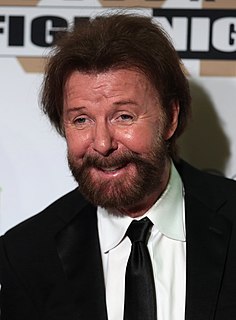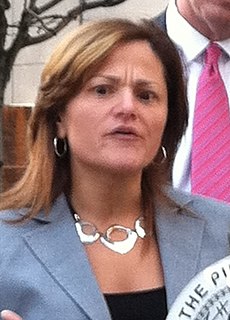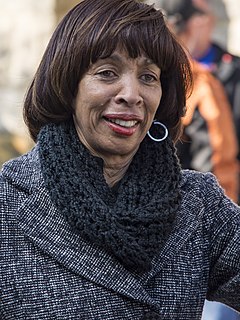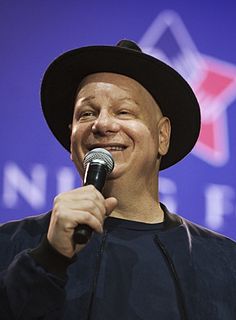A Quote by Wyatt Cenac
There's more we can do as a community to try to change what policing looks like in our cities.
Related Quotes
When we look at cities across the country, Cincinnati, for example, where they have come under DOJ guidance with a consent decree, we see that, over time, there has been a transformation in the relationship between the police and the community, where now they have a partnership and true collaborative policing, co-policing, to make the community safer overall.
Chicago is where the whole idea of community policing began. It remains the - the best and the most comprehensive approach we have in changing the everyday conditions that breed crime and violence - and then breed mistrust. We have more work to do. We need better training to live up to the values and the principles of community policing.
How do you think policing is in places like China, or North Korea? Whatever we experience, in terms of our policing, I also wanted to make known that the rest of the world suffers ten times more because of that power dynamic; because of the fact that there is no Posse Comitatus in other places which is what prevents in our country, or what is supposed to prevent the military from taking on a policing role of its own people.
For me, in trying to talk about something like policing, it's such a huge issue, and it's an issue that's very local and very personalized to communities, to cities, to legislators, and so, in that way, I think as we started looking into talking about policing, the thing that you realize is that you can't paint everything with the same brush.
We have to change laws. We have to change our approach to policing and incarceration in general. But we can get the population to a point where we can then go to the community-based facility models, where people should be able to await their trial dates, or if you're in jail for a year or less, if you have some sort of time that you have to spend in jail, that you can do it closer to your networks. Your family can visit you. You can talk about other ways of having people complete their time.
Fifty percent of the world's population lives in cities. In a couple of decades, 70 percent of the world's population will be living in cities. Cities are where the problem is. Cities are where the solution is, where creativity exists to address the challenges and where they have most impact. This is why, in 2005, the C40 was founded, an organization of cities that address climate change. It started with 18 cities; now it's 91. Cities simply are the key to saving the planet.
In Boston where community policing is so important, they don't necessarily have to like each other, but they know each other. The cops in Boston make it their business to get out of their vehicles, to engage the public, to walk around the neighborhoods. They live in the community that they police. And I think these things help.

































